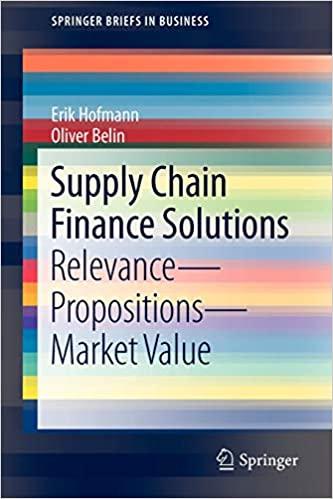Question
Please not solving by excel You manage a risky portfolio with expected rate of return of 17% and standard deviation of 27%. The T-bill rate
Please not solving by excel
You manage a risky portfolio with expected rate of return of 17% and standard deviation of 27%. The T-bill rate is 7%. a) Suppose that your client prefers to invest in your fund a proportion y that maximizes the expected return on the complete portfolio subject to the constraint that the complete portfolios standard deviation will not exceed 18%. What is the investment proportion, y? What is the expected rate of return on the complete portfolio? b) Suppose your clients degree of risk aversion is A=4, what proportion, y, of the total investment should be invested in your fund? What is the expected return and standard deviation of this new portfolio? The utility function is U=log[E[R] - 1 2 A 2] (Hint: You first need to derive an explicit formula for the optimal portfolio weight by solving an optimization problem. The one I derived in the lecture is not valid here!). c) Suppose you have two risky asset, Asset A and Asset B. Asset A has an expected return of 10% and a standard deviation of 20%. Asset B has an expected return of 30% and a standard deviation of 60%. The correlation coefficient between Asset A and Asset B is -0.4. The T-bill rate is 7%. Write the optimization problem whose solution will give the optimal risky portfolio if short selling is not allowed in this market? (Do not solve the optimization problem!).
Step by Step Solution
There are 3 Steps involved in it
Step: 1

Get Instant Access to Expert-Tailored Solutions
See step-by-step solutions with expert insights and AI powered tools for academic success
Step: 2

Step: 3

Ace Your Homework with AI
Get the answers you need in no time with our AI-driven, step-by-step assistance
Get Started


